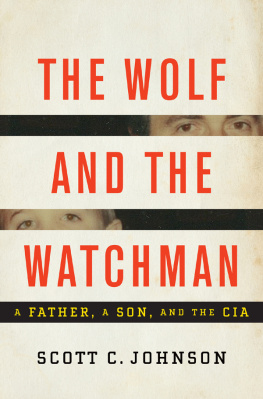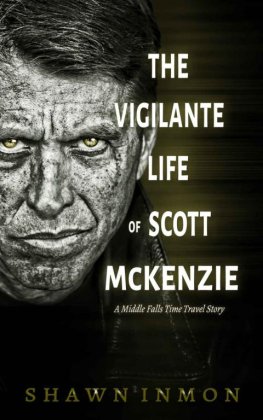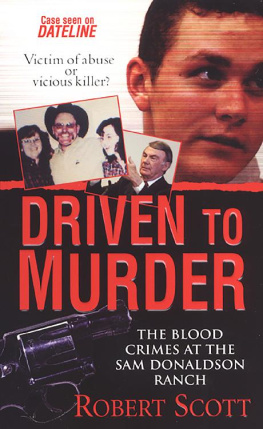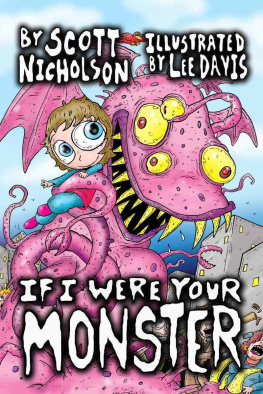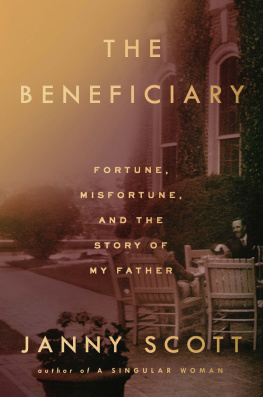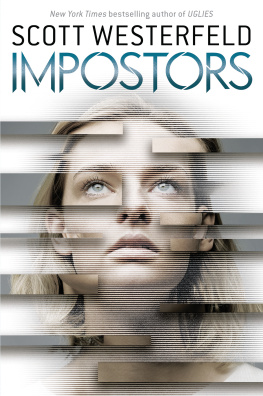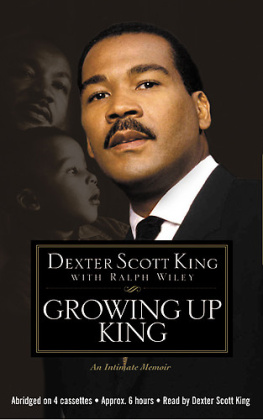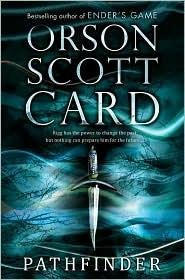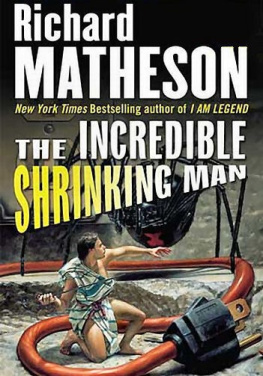I would like to thank several people, without whose wise counsel, support, and wisdom this book never would have seen the light of day. I am tremendously grateful to Georges Borchardt, who believed in me and helped me to understand what I was writing, and why.
Barbara Galletly showed an early and intense interest in the book, and helped me to navigate the initial hurdles. The indefatigable Kate Johnson has stayed with me throughout, steering me through challenges, rejections, and successes, and for that I am very grateful.
Henry Rosenbloom and the team at Scribe believed in this book when few others did; I will never forget that. Julia Carlomagno was a terrific reader and a wonderfully precise editor. The design team deserves special thanks for including me in its decision-making process.
Id like to thank everyone at W. W. Norton, particularly Jeff Shreve, a tireless advocate and wonderful supporter.
Thanks to Annie Cobb, who read early drafts and counseled me through the writing and the emotional hazards of the project. She is a fine writer, and her belief in me over many years was a real gift. Thanks also to Joe for the house and fine company.
I am grateful to the Iraqi staff of translators, drivers, and security guards who worked for Newsweek during the years I was there. They enriched my experience of Iraq immeasurably, and their dedication, loyalty, and bravery through years of hardship was remarkable.
Thank you to Luc Delahaye for the friendship and the honesty. Im grateful to Rod Nordland for teaching me how to work in places like Afghanistan and Iraq; and to Peter Baker, for months of adventure in Afghanistan. I thank Babak Dehghanpisheh, Joshua Hammer, Michael Hastings, and Joe Contreras for their friendship, and for the many conversations that helped to shape the ideas in this book. And a special thanks to Christopher Dickey, a fine mentor and friend, who taught me so much about family and friendship, and the value of the written word.
None of this would have been possible without the loving support of my family. My mother, Lee, consented to multiple interviews and endless questioning, and through it all showed a great deal of patience. Janet Johnson gave me valuable insights and support, and Im grateful for the loving relationship I have with her today. Her daughter, Amy, has been a wonderful sister for many years. Linda Ainsworth provided love, humor and a place to write. I thank Ben Riggs for his honesty and for the continued love and support he gives my mother.
Several people who shall remain nameless helped me in ways small and large to understand the CIA and the world of secrets. Thanks to C., A., S., G., P., and M. Thanks also to all the children of The Farmthose with whom I spent my childhood and those who came before and after.
I benefited from the documents discovered by the National Security Archive, and from the poetry of Yevgeny Yevtushenko. My gratitude also goes to several people in Mexico, who shall remain nameless, for their friendship and love. Their lives were affected by the difficult years of the Dirty War in the 1960s and 1970s, and Im thankful that they shared their stories with me. Abu Ahmed and several unnamed people in Amman helped me to understand the insurgency. Im grateful to the crews in Cape Town and Seattle for years of adventure and hilarity. And thanks to Ernie for taking care of the property, and of my dad.
Most of all, I owe a tremendous debt of gratitude to my father. Over many years he showed an unbelievable degree of patience and love with me as I waded through this material, which was often very difficult for him. I am lucky to have him as a father.
And through everything, my wife, Alison, has sheltered me with love, care, and devotion. She is a fine editor, a wonderful and patient listener, and the love of my life.
To write this book I spoke to many people, including family members, friends, and current and former CIA officers, over a period of years. I also drew on my own experiences, memories, notes, and video recordings to complete the picture. Whenever possible, I researched historical documents to verify the stories I had heard.
I have changed the names of some individuals to protect their privacy, and in some cases I have also modified identifying details to help preserve their anonymity. Others appear under their real names. There are no composite characters or composite situations in this book; all of the events are real.
When I was a child in India, a snake-charmer came to our house now and again. When he rang the bell, my mother gathered me in her arms and ushered him into the garden, where linen shirts and shalwar kameez swung in the breeze.
He set his wicker basket on the ground and brought out a wooden flute. Playing it, he swayed back and forth, circling the end of his flute down into the basket and up again, in hypnotic circular eights, until a black cobra appeared. Its head rose slowly, and it flicked and lashed its tongue. I was scared, half-believing the snake was under the mans control and half-sure it would lash out and strike me. He whistled to it as my mother held me tight, whispering in my ear that everything was okay; the snake was in a trance.
Eventually, the charmer made the cobra disappear back into the wicker, into darkness, and the world returned to its normal bright glow. The charmer blessed us, bowed his head, and left.
Other times it was a music-man, with a ratty wooden harmonium and a tangled beard. He sang and played songs. He had sad and wise eyes, and his music reflected the world back at me. Once, my mother invited him into the house and drew his portrait.
These two men were among my earliest memories. They came to me with what they knew, and I imagine each of us left with a little bit more of the other.
My parents had arrived in India during the rains. Refugees from the war in Bangladesh were pouring into Calcutta with tales of violence. In an already overpopulated city, the deluge of humanity only added to the aura of a war-torn wasteland. The airport that early morning was thick with heat and sickness. My mothers memory of it makes it seem like walking into a nightmare: she remembers inert bodies, some naked, some wrapped in a gauzy white cloth as if they had been mummified, sprawled in doorways and along walls. A swarm of huge insects, half-scorpion and half-spider, leeched along the floors and sallow, yellow-eyed men skulked down alleys. They stayed for a few hours in a dingy hotel before their next flight, and my mother clung to my father throughout, unsure of what kind of pact she had enteredbut sure that the man on her arm was strong enough to carry her through it.
They landed in Madras the next morning. A consulate man met them at the airport and took them to their hotel, where my mother collapsed in exhaustion. The long voyage, a new marriage, and the prospects of a new lifeall of it became crushingly real.
In Madras, my father inherited a house with its own name: The Flame, because of the fuchsia bougainvillea blazing on the arched latticework around the door. The Flame was home to five Tamil-speaking servants. The previous occupant was a consulate man too, and he and his wife, Alice, had been there the day my parents had arrived to look things over. It was hot and muggy, and Alice greeted them from under the shade of the verandah, careful not to step too far into the sun. She looked haggard. She had a distended belly, and my mother thought she might be dying. They sat on a pillowed teak couch as Alice gave her a tutorial, woman to woman, on her new country. Alice was sick of India, she said, with all the parasites and bugs, the rodents and unidentifiable dark shadows that scuttled back and forth along the floorsand if the bugs didnt get you, the snakes and scorpions surely would. My nails are going, my skins going, she said bitterly, and raised a scaly arm to prove it. The threats went unnumbered. She sipped a bitter gin fizz and ran a few bony fingers through a mat of dry hair, and gazed at my horrified mother with eyes full of pity and defeat.
Next page
